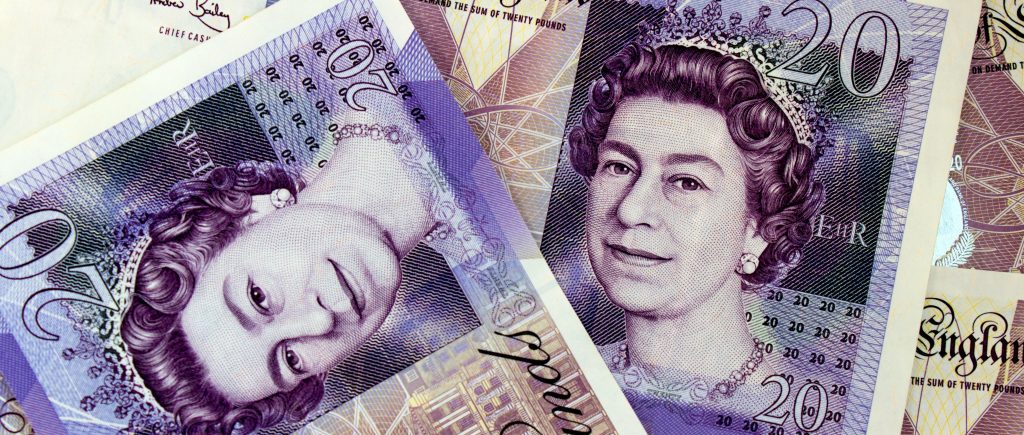The GBP/USD pair surged to 1.3600, up over 0.47% in a single session, and at the time of writing, the pair stabilizes at 1.3588; it is still up 0.37%, driven by softening US economic data and a weakening dollar. Despite a sharp UK economic contraction, the pound has capitalized on US vulnerabilities. With Chancellor Rachel Reeves navigating a delicate fiscal landscape, what forces are propelling this rally, and can it endure?
US Data Weakens, Boosting Rate Cut Expectations
On June 12, 2025, the US Bureau of Labor Statistics reported a May Producer Price Index (PPI) increase of 2.6% year-over-year, up from 2.4% in April, while core PPI dipped from 3.1% to 3.0%. Coupled with softer consumer inflation data, markets now anticipate 52 basis points of Federal Reserve rate cuts by year-end, pressuring the dollar. Federal Reserve Chair Jerome Powell faces growing calls for monetary easing as Initial Jobless Claims for the week ending June 7 remained at 248,000, above expectations of 240,000. This mirrors 2023 trends when similar data weakened the dollar temporarily, but today’s environment is complicated by President Donald Trump’s tariff policies, which have yet to fully impact inflation. These factors have bolstered the pound’s relative strength.
UK Economy Contracts, Yet Pound Holds Firm
The UK economy contracted by 0.3% in April 2025, the steepest decline in 18 months, driven by higher business taxes, rising household bills, and a sharp drop in US exports due to global trade uncertainties. Chancellor Rachel Reeves, in response to these “disappointing” figures, has not ruled out further tax increases in the upcoming Autumn Budget, citing global economic volatility. Despite the monthly contraction, the more stable three-month GDP figure to April showed 0.7% growth, suggesting some resilience. The Spending Review on June 11, 2025, prioritized long-term investments, including £29 billion annually for the NHS and £11 billion for defense, though other departments face budget cuts. Markets expect two Bank of England rate cuts in 2025, reflecting concerns about growth, yet the pound has gained, driven by dollar weakness rather than UK strength.
Fiscal Pressures and Tax Rise Speculation
Reeves’ fiscal strategy, outlined in the Spending Review, emphasizes growth through investments in health, defense, and infrastructure like social housing and nuclear projects. However, tight fiscal headroom—projected at £9.9 billion by decade’s end—leaves little room for error. The Institute for Fiscal Studies warns that any economic downturn could force tax hikes, with council taxes potentially rising by 5% annually, the fastest in two decades. The Resolution Foundation highlights that unfunded welfare changes, such as winter fuel payment adjustments, increase the likelihood of Autumn tax rises. Reeves’ refusal to commit to no further tax increases, combined with global uncertainties like US tariffs, fuels speculation of fiscal tightening, which could dampen growth further.
Can GBP/USD Maintain Its Gains?
Technically, GBP/USD remains bullish, with the Relative Strength Index nearing overbought territory. The pair hit a yearly high of 1.3623 but struggles to hold above 1.36. Resistance lies at 1.3626, with further targets at 1.37 and 1.3750. A drop below 1.36 could test support at the 20-day Simple Moving Average of 1.3521, followed by 1.35 and the 50-day SMA at 1.3319. The US economic calendar, including University of Michigan Consumer Sentiment data, may influence dollar sentiment, while the UK’s sparse schedule shifts focus to Bank of England Governor Andrew Bailey’s next moves. The pound’s rally hinges on sustained US economic softening and Reeves’ ability to navigate fiscal constraints without stifling growth. Global trade tensions and domestic policy decisions will be pivotal in determining whether this upward momentum persists.
The GBP/USD surge reflects a complex interplay of US weaknesses and UK fiscal challenges. With Reeves’ Spending Review betting on long-term growth but risking short-term tax hikes, the pound’s strength may face tests as economic uncertainties unfold.
 Noor Trends News, Technical Analysis, Educational Tools and Recommendations
Noor Trends News, Technical Analysis, Educational Tools and Recommendations





